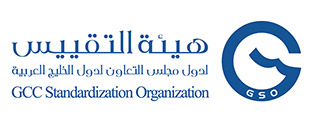
GSO: MOU Partner since 2006
Sustainable Construction a Recent Focus
In 2001, the Supreme Council of the Cooperation Council for the Arab States of the Gulf (GCC) resolved to establish a standardization organization, GSO. The purpose: to unify standards and related work among its members, which now include Bahrain, Kuwait, Oman, Qatar, Saudi Arabia, United Arab Emirates and Yemen. GSO works to further coordination and cooperation in standardization to develop the production and service sectors; foster intra-GCC trade; protect consumers, the environment and public health; and enhance GCC economies.
GSO standards committees cover lead industrial sectors for the GCC states such as construction, and they develop standards and technical regulations that can be used throughout the region. A training program has also been put in place to build the skills of those involved in standardization work. On the conformity and accreditation front, the "Regional Conformity Assessment Scheme" is being implemented to serve the interests of the GCC states, with the recommendation of a single accreditation body.
GSO and ASTM International have partnered formally since 2006, when a memorandum of understanding was signed between the two organizations. GSO member nations individually have also signed MOUs with ASTM.
Some 200 individual stakeholders from GSO countries serve as members of ASTM technical committees that address petroleum, various aspects of the built environment, occupational health and safety, the environment, and quality and statistics. GSO has referenced or adopted hundreds of ASTM standards, many for petroleum and related products, but also for cement, clay pipe, concrete, fasteners, glass, gypsum, mechanical testing, metals, paint, plastics, thermal insulation and more.
The GSO-ASTM collaboration has involved training such as the 2008 sessions on products and standards in the cement and concrete sectors held in Riyadh, Saudi Arabia, and Doha, Qatar, as well as participation by GSO and its member countries in the ASTM Standards Expert Program. In April, GSO member representatives participated in an April 2013 workshop on Sustainability in Construction held at ASTM International headquarters. Nabil Molla, secretary general of GSO, said, "Cooperation between ASTM and GSO goes back to early 2005." He added, "GSO can capitalize on the vast and diversified experience of ASTM."
Highlighting recent GSO-ASTM cooperation is an October 2012 training program covering sustainable concrete and sustainable building, and the relevance of ASTM International standards. Architects, engineers and standards development professionals representing government groups from all the GSO member states attended the two-day training in Doha, Qatar.
Richard Szecsy, Ph.D., P.E. president, Texas Aggregates and Concrete Association, Austin, Texas, and a member of ASTM Committee C09 on Concrete and Concrete Aggregates, led the training, which focused on both materials and process. "There's tremendous opportunity for education and technology transfer," Szecsy says. A case in point is the similarity in climate between the GSO countries and the Southwestern United States. Both climates can be very hot and humid, which means similar concrete production methods can be shared, as can effective admixture technologies. The concern is getting the information to the groups that can use it effectively. "The GSO/ASTM partnership is ideally poised to make that happen," Szecsy adds.
During the program, Szecsy spoke about water and materials management, plant design issues, approaches to sustainability for cement and concrete, and green design and building.
The program was intended to help build consensus for a Gulf region building code that is being developed by GSO that will contribute to environmentally sustainable development in the area. Gulf region government ministries "are strongly encouraging the development of standards that conform to sustainable practices," Szecsy says.
 SN Home
SN Home Archive
Archive Advertisers
Advertisers Masthead
Masthead RateCard
RateCard Subscribe
Subscribe Email Editor
Email Editor